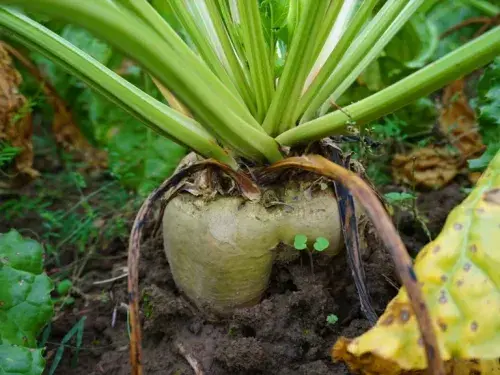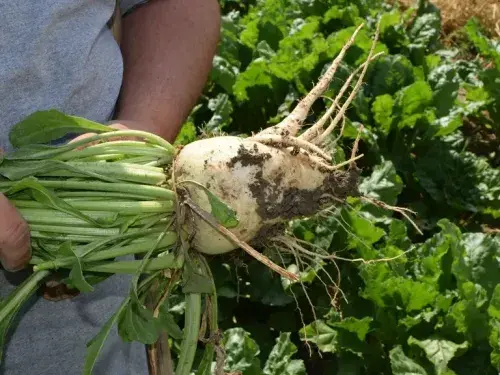In a world where sustainability and environmental stewardship have become paramount, regenerative organic crops have emerged as a beacon of hope, transforming the way we approach agriculture. These crops, certified under a set of stringent principles, are revolutionising the way we grow food and are playing a pivotal role in creating a regenerative and balanced ecosystem. In this blog post, we delve into the intricacies of regenerative organic crops, their benefits, how traditional crops can be transformed into regenerative organic ones, and what impact it has on the ethanol industry.
Defining regenerative organic crops
Regenerative organic agriculture is based on three pillars: soil health, social fairness, and animal welfare. These pillars, as outlined in the Regenerative Organic Certification (ROC) standard, encompass the fundamental principles that guide the cultivation of regenerative organic crops. A crop is certified as regenerative organic when it adheres to these principles and actively contributes to the restoration of the environment while supporting the well-being of farmers and communities.
Benefits of regenerative organic crops
The benefits of regenerative organic crops are multifaceted and far-reaching, making them a sustainable choice for both the environment and consumers:

Improved soil health
Regenerative organic practices focus on replenishing and nurturing the soil, leading to increased fertility, enhanced water retention, and reduced erosion.
.webp)
Biodiversity enhancement
By promoting diverse planting practices, such as the creation of wildlife habitats, and minimising the use of chemicals, regenerative organic crops create a thriving habitat for various flora and fauna.
.webp)
Carbon sequestration
Regenerative organic crops have the ability to capture and store carbon dioxide from the atmosphere, aiding in the fight against climate change.

Nutrient-rich produce
Regenerative organic crops often yield higher-quality and nutrient-dense produce, contributing to healthier diets and improved well-being.

Resilience to climate extremes
The emphasis on robust and adaptable ecosystems in regenerative organic agriculture helps crops withstand climate-related challenges.
.webp)
Empowering farmers
The social fairness pillar ensures that farmers are fairly compensated and provided with safe working conditions, fostering a more equitable agricultural system.
Transforming traditional crops
Transitioning from conventional farming methods to regenerative organic crops requires a deliberate approach. Practices employed by farmers that want to name themselves regenerative organic include, but are not limited to:
- crop rotation
- minimal soil disturbance
- rotational grazing
- use of compost
- abolishment of synthetic fertilisers
Farmers can implement these practices through various actions that depend on region-specific weather conditions, flora and fauna, and local farming methods. In Brazil, for example, minimal soil disturbance can be reached by stopping to burning of existing vegetation in preparation for new fields. Another example is the use of biological pest control instead of synthetic fertilisers.
Regenerative organic crops around the globe
Regenerative organic agriculture has garnered momentum across the globe, with notable examples in South America, the US, and India. Many farmers and agricultural organisations in these countries have embraced regenerative organic practices, demonstrating their commitment to sustainable farming and environmental rejuvenation. Crop types range from cotton for clothing production to coffee, chillies, and coconuts for food and beverages. Sugarcane and other raw materials used in ethanol production can also be subject to becoming regenerative organic crops.
Regenerative organic and the ethanol industry
The ethanol industry is slowly but surely starting to embrace regenerative organic crops: with sugarcane, wheat, and other raw materials typically used to produce ethanol being grown in countries where regenerative organic crops become more popular, suppliers can sooner rather than later start offering ethanol in bulk made from the most sustainable types of crops yet.
As your tailored ethanol supplier, Nedstar stands at the forefront of this transformation. By sourcing regenerative organic sugarcane from Brazil for some of our organic ethyl alcohol, Nedstar exemplifies how sustainability and innovation can converge to create a greener future. This support of regenerative organic practices not only contributes to a reduced carbon footprint but also supports local communities and fosters a healthier ecosystem, all things ingrained in Nedstar’s core values.
A positive environmental shift for the agricultural industry
The possible shift towards regenerative organic crops could signify a pivotal moment in the world’s agricultural development that would also trickle down to other sectors as a positive environmental and societal effect. The revival of soil health, resurgence of biodiversity, and empowerment of farmers that regenerative organic agriculture enables hold the key to a more sustainable and resilient future. With regenerative organic products that support rather than destroy our environment, such as regenerative organic ethanol, we can come a significant step closer to reaching nationwide climate change and environmental goals.











Leave a comment